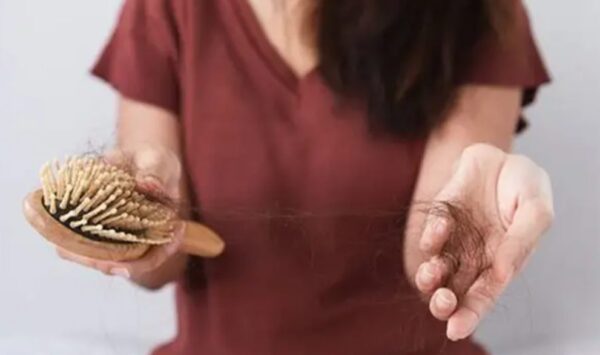Lifestyle
5 things to avoid when you’re struggling with alopecia

Dealing with a skin condition like alopecia areata can be frustrating.
But before getting into what to avoid when you have alopecia areata, it will help to know a little more about this type of alopecia, which is the medical term for baldness.
Alopecia is an autoimmune disease that mainly attacks the hair follicles present on our bodies and includes a long and exhausting treatment process.
Where some remedies and precautions can work well, there are other tips that need to be avoided, which can trigger the condition and decrease hair health.
Here are 5 things to avoid when you’re dealing with alopecia, and it’s something more than consuming vitamin D or anti-inflammatory foods for the win.
1. Try to avoid these foods
Alopecia is an immune response, which means it is caused by how your body tries to defend itself against bacteria and viruses. Immune responses can be inflammatory, which can be triggered by the consumption of some foods. Try to avoid consuming sugary foods, which convert into refined carbohydrates and increase inflammation. Gluten is another triggering point that can lead to inflammation and worsen the autoimmune condition.
Fried and highly processed foods are obviously a big no, as the unhealthy fats can shake up your immune system, but one should also stop consuming red meat, which may protect against chronic inflammation.
2. Don’t take too much sun exposure
It is nearly impossible to get too much sun exposure, but if you have a bald patch, then start using hair sunscreens and protect yourself with umbrellas, scarves, and hats, as noticeable hair loss can occur from the harmful UV rays. People who do not have alopecia should also take these precautions, as UV rays do not just harm your skin, but they also react on our hair scalp, leading to weak cuticles.
3. Try dealing with your stress
Stress is a natural feeling felt by humans, but people struggling with alopecia should know how to cope with this feeling. Our stress hormones activate your fight-or-flight response, helping you survive. But, if things take a bad turn, then this results in scalp inflammation, which then leads to excessive hair fall. Alopecia may also cause emotional distress and create a negative impact on your self-esteem, but try to manage it and control your feelings as much as you can.
4. Consume enough vitamin D
We’re not trying to be hypocritical by asking you not to get too much sun, but understand that vitamin D exposure is essential. People with autoimmune disorders do struggle with vitamin D deficiency, which has a link with hair growth. As alopecia is an autoimmune disease, this type of hair loss is actually related to nutritional deficiencies. Thus, try to consume vitamin D foods or supplements nearly every day.
5. Stop using hair products with harsh chemicals
Hair products with harsh chemicals such as parabens or phthalates may strip off the scalp oil and bacteria, altering your skin’s microbiome, which can create alterations in the gut, skin, and hair follicles. These changes are all linked to alopecia, thus requiring one to stop using harsh chemicals on the scalp primarily.






